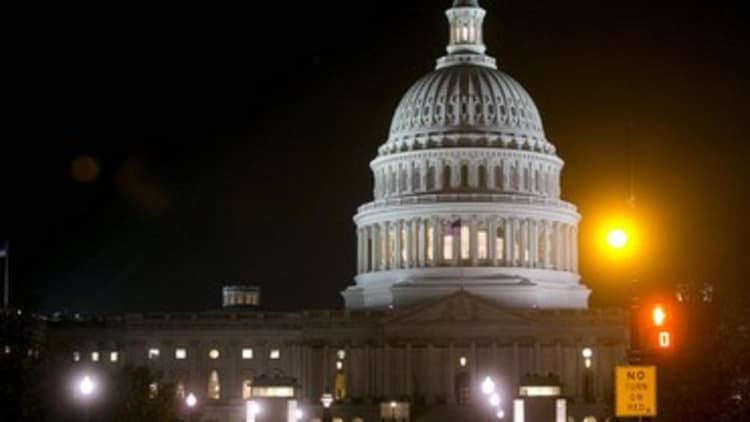


Voters across the country go to the polls for midterm congressional elections Tuesday, but voters in just 10 states will decide the most important result.
Close races in those 10—Alaska, Arkansas, Colorado, Georgia. Iowa, Kansas, Kentucky, Louisiana, New Hampshire and North Carolina—will determine whether Republicans or Democrats hold the U.S. Senate for the final two years of President Barack Obama's term. That matters not only for the fate of legislation on topics such as trade, infrastructure and energy, but also on Obama's ability to win confirmation of top administration officials and judges who would outlast his presidency.
Both the sweep of history and near-term odds favor Republicans. The president's party nearly always loses seats in midterm elections, and often a lot of seats. Republicans hold late polling leads in seven of those 10 contested races. Combined with three seats that Republicans are poised to win easily in staunchly conservative Montana, South Dakota and West Virginia, holding those leads would leave Republicans with a net gain of seven seats and a 52-member majority.
But Democrats insist they remain close enough in enough places that, if their turnout efforts edge out those of Republicans again, they could reach a 50-50 deadlock that allows Vice President Joe Biden to break ties and give them the majority. That slender hope rests on winning close races to hold Democratic seats in Colorado, Iowa and North Carolina and adding one other win from among Georgia, Alaska and Kansas.
Read MoreThe most important political money man you've never heard of
House races offer a smaller prospect for change. Given the GOP House sweep in 2010 and gerrymandering that puts most members in safe seats, only two dozen or so House races are tightly contested. Democrats hold no hope of recapturing a House majority. The Cook Political Report projects Republican gains of six to 12 seats.
The divergence between a mostly calm House landscape and turbulent Senate one could produce a historical oddity: a president's party losing more Senate than House seats in a midterm election. The only modern president who suffered that outcome was Ronald Reagan in 1986, when Democrats recaptured the Senate for the final two years of his term.
Read MoreHere's your hour-by-hour guide to Tuesday's elections
A raft of important gubernatorial races have also produced big-spending, high-profile contests. Colorado, where Democrat Gov. John Hickenlooper seeks to hang on, and Florida, where Republican Gov. Rick Scott faces his predecessor, Charlie Crist, both take place in 2016 presidential battlegrounds. In Wisconsin, Republican Gov. Scott Walker can keep alive his 2016 presidential hopes by winning re-election.
On an otherwise foreboding election night for their party, Democrats look forward to winning four state initiatives on their push to raise the minimum wage. It's on the ballot in Alaska, Arkansas, Nebraska and South Dakota.


